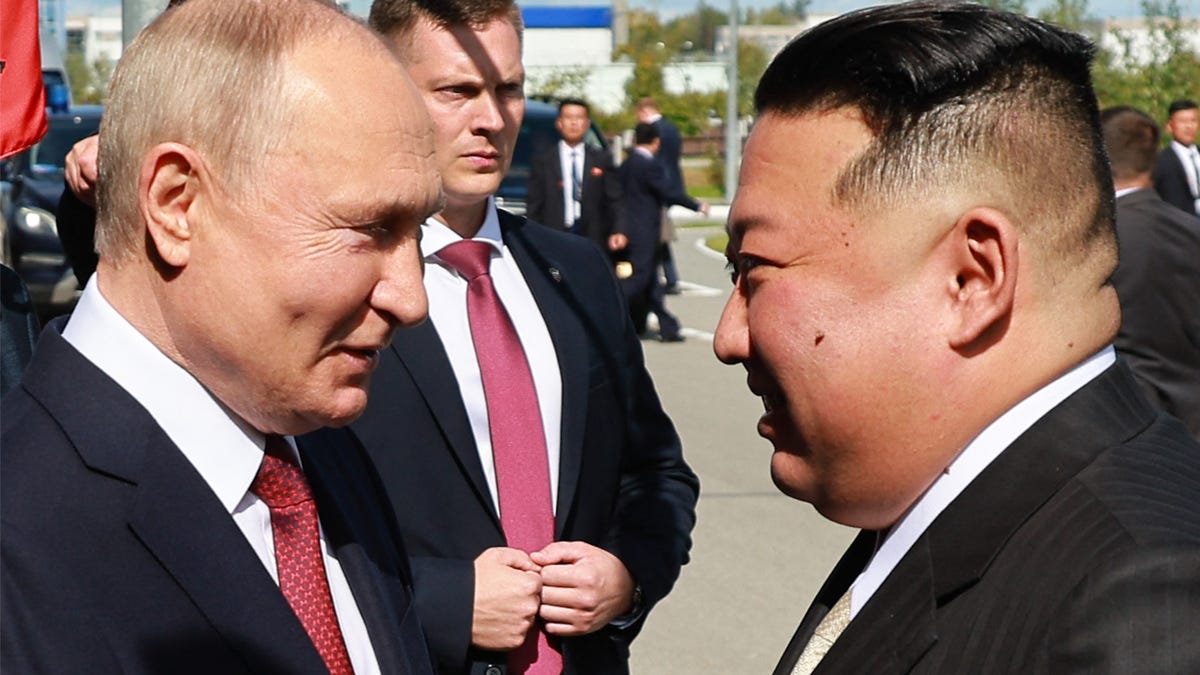SEOUL, April 28 (Reuters) – North Korea confirmed for the first time on Monday that it had sent troops to fight for Russia in the war in Ukraine under orders from leader Kim Jong Un and that it had helped regain control of Russian territory occupied by Ukraine.
North Korea’s unprecedented deployment of thousands of troops, as well as massive amounts of artillery ammunition and missiles, gave Russia a crucial battlefield advantage in the western Kursk region and has brought the two economically and politically isolated countries closer.
The victorious end of the battle to liberate Kursk showed the “highest strategic level of the firm militant friendship” between North Korea and Russia, state news agency KCNA cited the North’s ruling party as saying.
Russia acknowledged the North Korean deployment for the first time over the weekend and said Ukrainian forces had been expelled from the last Russian village they were holding. Kyiv has denied the claim and said its troops were still operating in some parts of Russian territory.
On Monday, Russia’s President Vladimir Putin expressed his personal gratitude to North Korea and Kim.
“We will always honour the Korean heroes who gave their lives for Russia, for our common freedom, on an equal basis with their Russian brothers in arms,” Putin said in a statement released by the Kremlin.
The Central Military Commission of North Korea’s Workers’ Party said Kim made the decision to deploy troops under the comprehensive strategic partnership treaty he signed with Putin last year.
Under Kim’s orders, North Korean military units fought with the same heroism and bravery they would have shown if they were fighting for their own country, KCNA cited the Commission as saying.
“They who fought for justice are all heroes and representatives of the honour of the motherland,” KCNA quoted Kim as saying.
North Korea “regards it as an honour to have an alliance with such a powerful state as the Russian Federation,” KCNA said.
The U.S. State Department demanded North Korea’s deployment to Russia and any support by Russia in return must end, adding Russia had violated U.N. Security Council resolutions by training North Korean soldiers.
Countries such as North Korea, whose support has “perpetuated the Russia-Ukraine war, bear responsibility,” a State Department spokesperson told Reuters.
South Korea said Monday’s confirmation of the troop deployment was an “admission of criminal act,” and condemned the North for the “inhumane and immoral” decision to send its young people to battle with the intention of propping up its regime.
‘AT THE COST OF BLOOD’
The timing of the confirmation, after more than six months of silence, and stressing the sacrifice of North Korean troops “at the cost of blood” was meant to amplify Kim’s partnership with Putin as equals, said Hong Min of the Korea Institute for National Unification.
“It now became necessary to put on a diplomatic performance for the North Korean and Russian leaders to pledge stronger ties,” he said, calling the confirmation “a build-up” to a summit meeting in Russia.
The announcement sends a clear signal to Ukraine and its western partners that Russia and North Korea maintain a military alliance, potentially justifying their deployment to other areas, including in Ukraine itself, said Artyom Lukin from Russia’s Far Eastern Federal University.
“Having the option of deploying them to Ukraine strengthens Moscow’s positions in the Washington-mediated ceasefire negotiations that are entering a crucial stage right now,” he said.
North Korea sent an estimated 14,000 troops, including 3,000 reinforcements to replace its losses, Ukrainian officials have said. Lacking armoured vehicles and drone warfare experience, they took heavy casualties but adapted quickly.
Ukraine’s Special Operations Forces said on April 24 that they had killed a unit of 25 North Korean soldiers in Kursk. They released a video showing one of the slain soldiers and their possessions, which included a note written in Korean.
North Korea has also supplied weapons including artillery munitions and ballistic missiles, South Korean officials have said.
For Pyongyang, the cooperation gives it greater security, Lukin said.
“After Kursk, North Korea’s security is not only based on its nukes,” he said, “it also stems from the alliance with a great military power, Russia.”
(Reporting by Jack Kim, Hyunsu Yim, Ju-min Park, Joyce Lee, and Josh Smith in Seoul and Kanishka Singh in Washington; Editing by Sandra Maler and Saad Sayeed)
